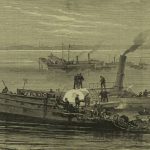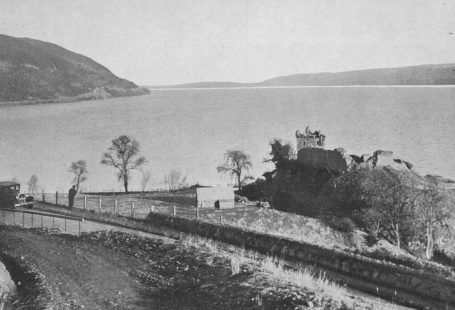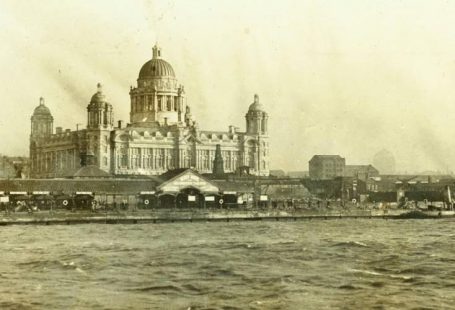This week at The Archive we have been as busy as ever adding new pages and new titles to our collection. In all 106,730 brand new pages have joined us, as we welcome a bumper crop of ten brand new titles from across the British Isles and Ireland – including what might very well be Wales’s first ever newspaper, and the beginnings of a famous national newspaper.
Read on to discover more about this week’s exciting new additions!
Register now and explore the Archive
Our new titles have an especially Welsh flavour – with five new Welsh titles joining us this week alone. Starting us off is what is claimed to be Wales’s oldest newspaper – the Carmarthen Journal. Founded in the town of Carmarthen in 1810 by a group of gentlemen allied to the Whig party, the building which houses the newspaper asserts that it is indeed the oldest newspaper in Wales.
Carmarthen Journal | 12 January 1821
By the 1820s the Carmarthen Journal was asserting its support of the Tories and it eventually became the ‘official organ of the Conservative Party in South Wales,’ whilst also advocating the principles of the Church of England. Circulating in Camarthenshire, Pembrokeshire, and Cardiganshire, the Carmarthen Journal had a focus on agriculture and commerce.
We have also added the Star of Gwent this week to our Welsh newspaper holdings. Initially known as the Monmouth, Glamorgan and Brecon Herald; or, Star of Gwent, it was founded in Newport by John C Patterson in 1852, featuring local news from the area.
Joining us also is the Pontypridd Observer. Published in the town of Pontypridd, just over ten miles north of Cardiff, this newspaper was founded in 1897 and was known simply as The Observer from 1913 to 1928, before becoming the Pontypridd Observer and Glamorgan Free Press until 1967. It now forms part of the Pontypridd and Llantrisant Observer.
Pontypridd Observer | 10 April 1897
Rounding off our new Welsh additions are the Radnor Express and Port Talbot Guardian. The Radnor Express was published in Brecon and was a liberal weekly newspaper. Meanwhile, the Port Talbot Guardian was another local weekly newspaper, which ran between 1925 to 2009. It covered the Port Talbot area, as well as Baglan, Margam and the Afan Valley.
We move across the Irish Sea now for our next new titles. We are delighted to welcome the historic Waterford News Letter this week, which ran from 1800 and 1917 and covered the latest news from Waterford city. From Northern Ireland, we have added the Strabane Weekly News, which covered local news from North Tyrone and East Donegal. Unionist in its outlook, it was first published in 1908.
Waterford News Letter | 3 July 1838
Finally, we have a trio of new titles from England. Starting us off is the Gloucester Mercury, which ran between 1855 and 1884. First published on the 7 July 1855 as the Gloucester Free Press and Weekly Advertiser, it espoused a Liberal viewpoint. In 1861 the newspaper was described as circulating in ‘Gloucester and neighbourhood. Advocates the measures of the Liberal Party. It contains the intelligence of the city and the country with general news, miscellanies, literary extracts, etc.’
We have added two brand new titles from Manchester, beginning with the Manchester Daily Examiner & Times. This particular newspaper was born out of a merger between the Manchester Examiner & Times with the Manchester Daily Times on 18 June 1855. It then became known as the Manchester Examiner & Times again in June 1874, running to March 1894.
Manchester Daily Examiner & Times | 8 July 1856
Last but by no means least is the Mancester Guardian – the forerunner of famous national The Guardian. Read on to discover more about the birth of The Guardian – but don’t forget to take a look at our recently updated titles, which include the brand new pages we have added to specialist sporting title the Sporting Chronicle, as well as updates to a couple of our Welsh titles, and finally we have added the year 1994 to the Dundee Courier.
The Birth of The Guardian
National daily newspaper The Guardian has its roots in Manchester, and they are notably historic ones. This famous title began life as the Manchester Guardian, and first appeared on Saturday 5 May 1821. Far from the centre-left politics it is now renowned for espousing, it was founded by cotton merchant John Edward Taylor with support from a group of non-conformist businessmen known as the Little Circle.
Taylor began the Manchester Guardian after police forced the closure of the radical Manchester Observer, which was vocal in its support of the Peterloo Masacre protestors. Taylor was known to be hostile towards radical reformers, commenting how ‘They do not toil, neither do they spin, but they live better than those who do.’
Manchester Guardian \ 7 July 1821
Consequently, the Manchester Guardian was seen as something of a champion of the mill-owners, with contemporary working class newspaper the Manchester and Salford Advertiser calling the publication a ‘foul prostitute and dirty parasite of the worst portion of the mill-owners.’
The first edition of the Manchester Guardian lays out how the undertaking is of an ‘important and responsible character.’ It also lays out its hopes for the future:
We wish…to contribute, however humbly, to the public improvement, the success of our undertaking may be secured, that we shall obtain that support, which we do not expect, and in fact ought not to wish for, on any other terms.
John Edward Taylor, founder of the Manchester Guardian | The Graphic | 7 May 1921
Despite its bias towards the mill-owning classes, the newspaper was virulent in its opposition of the slave trade. An article from 1823 lays out the ‘cruelty and injustice of…slavery’ and the ‘devastation which it spreads over the face of the earth.’ It describes how ‘the slaves in the West Indies are degradingly driven like cattle by the whip at their labour….and that they are held, and dealt with, as property, and often branded as such with a hot iron; – they are liable to be sold at the will of their master.’
The article goes on to describe how punishments inflicted ‘at the caprice…of the master or overseer,’ lamenting how Europeans have ‘spread barbarism and desolation on [Africa’s] coasts,’ instead of enhancing both civilisations through mutual discovery.
The Manchester Guardian therefore welcomed the Slavery Abolition Act of 1833, and it eventually became more radical, especially under the 57-year tenure of C.P. Scott from 1872. It decried the Second Boer War, supported female suffrage (but not the violent actions of the Suffragettes), and in 1919 it secured an interview with Lenin.
Long-serving editor C.P. Scott | The Graphic | 7 May 1921
The newspaper had long become daily, and by 1959 it had changed its name to The Guardian, to reflect its more national interests. Whilst in 1961 the newspaper began to be printed in London, marking a departure from its long-held Mancunian roots, which had been laid some 140 years before.
New Titles
Title |
Years Added |
| Star of Gwent | 1853-1866, 1901-1903 |
| Waterford News Letter | 1838-1848, 1870-1878 |
| Pontypridd Observer | 1897-1950 |
| Carmarthen Journal | 1821-1822, 1832, 1835, 1842-1843, 1846, 1852-1853, 1856-1858, 1860-1868, 1871, 1876, 1879-1880, 1889, 1892-1893, 1895-1896, 1906, 1911 |
| Manchester Daily Examiner & Times | 1856-1857, 1875-1877, 1889, 1894 |
| Port Talbot Guardian | 1927-1937 |
| Radnor Express | 1898-1910 |
| Strabane Weekly News | 1912 |
| Manchester Guardian | 1821-1828 |
| Gloucester Mercury | 1871, 1873, 1881-1884 |
Updated Titles
This week we have updated four of our existing titles.
You can learn more about each of the titles we add to every week by clicking on their names. On each paper’s title page, you can read a FREE sample issue, learn more about our current holdings, and our plans for digitisation.
Title |
Years Added |
| Sporting Chronicle | 1876-1877, 1879-1880, 1888 |
| Glamorgan Gazette | 1894, 1912, 1914, 1916, 1919, 1925-1926, 1928-1929, 1931-1950 |
| Caernarvon & Denbigh Herald | 1878-1884, 1886-1889, 1913-1920 |
| Dundee Courier | 1994 |
You can keep up to date with all the latest additions by visiting the recently added page. You can even look ahead to see what we’re going to add tomorrow.














